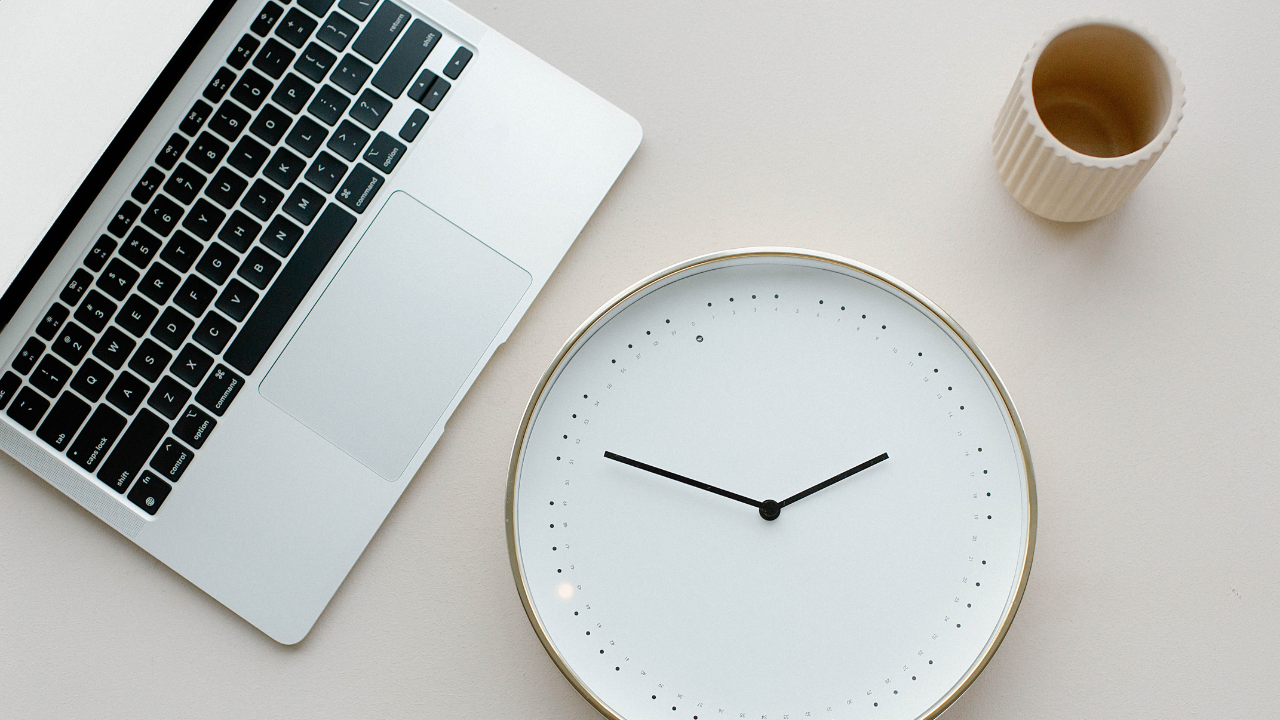Productivity is not a magic quality that only a lucky few possess. It is a skill that can be mastered through certain techniques and strategies. But which ones exactly? Don’t worry, I’m here to guide you through it. I have prepared six steps to help you become more productive and beat procrastination once and for all.
Hi, I’m Alyona, a life coach and TEDx speaker. Welcome to my website, and let’s dive into it.

Step 1: Understand Why You Need to Be More Productive
No fancy planners, timers, or deadlines will help if we don't work on your mindset first. People procrastinate because they lack motivation or are afraid of something, not because they don’t know how to set up a timer. To get motivated, ask yourself why you need to be more productive. What is the bigger gain behind this? What will be possible for you if your productivity skyrockets?
Step 2: Create Rituals for Your Workday

Start with your morning routine. Aim to wake up at the same time every day, regardless of whether you work in the office or from home. This helps you stay in control of your day. Have a nutritious breakfast that keeps you full for a long time so you don’t need to pause your work shortly after starting.
I personally enjoy slow mornings. I never start working straight away because I want to feel excited about getting up. I look forward to a nice cup of coffee, reading a book, or watching my favorite YouTube channel. However, during your slow mornings, do something useful to set you up for the day, like listening to a self-development video or meditating. Save Netflix for the evening relaxation rituals.
Ensure your workspace is inviting and comfortable. Make it your own and have everything ready for you to start working without delay. Having to set up your workspace every time can provoke procrastination. After your workday, have relaxation rituals to leave your worries behind and rest well. For example, I like lighting a candle while doing my evening beauty routine
I personally enjoy slow mornings. I never start working straight away because I want to feel excited about getting up. I look forward to a nice cup of coffee, reading a book, or watching my favorite YouTube channel. However, during your slow mornings, do something useful to set you up for the day, like listening to a self-development video or meditating. Save Netflix for the evening relaxation rituals.
Ensure your workspace is inviting and comfortable. Make it your own and have everything ready for you to start working without delay. Having to set up your workspace every time can provoke procrastination. After your workday, have relaxation rituals to leave your worries behind and rest well. For example, I like lighting a candle while doing my evening beauty routine
Step 3: Effective Planning
Planning isn’t just about creating a schedule. Many people plan "horizontally," tying tasks to specific times, like working on Project X on Monday and researching Product Y on Tuesday. This approach often fails because when the time comes, you might only have a vague idea of what you need to do, causing confusion and procrastination.
Instead, plan both horizontally and vertically. Split your projects into small tasks and decide when to do each one. For example, on Monday, create a content plan for Project X. Prioritize your tasks, focusing on the most important ones first. I always mark important tasks in red on my board to stay focused.
Instead, plan both horizontally and vertically. Split your projects into small tasks and decide when to do each one. For example, on Monday, create a content plan for Project X. Prioritize your tasks, focusing on the most important ones first. I always mark important tasks in red on my board to stay focused.
Step 4: Set Deadlines and Time Block

Deadlines can be uncomfortable but are necessary. If you give yourself all day to accomplish something, that’s how long it will take. Set realistic yet slightly uncomfortable deadlines to avoid thinking you have plenty of time, which can lead to relaxation and delays.
Some tasks on your schedule that you delay for days or weeks might actually take just 15 minutes to complete. You delay them because they are uncomfortable, but by blocking a tight time frame, you won’t have time to ruminate on their discomfort.
Some tasks on your schedule that you delay for days or weeks might actually take just 15 minutes to complete. You delay them because they are uncomfortable, but by blocking a tight time frame, you won’t have time to ruminate on their discomfort.
Step 5: Focus on One Task at a Time
“Wait, but I’m so good at multitasking.” No, nobody is good at multitasking. It has been scientifically proven that people who focus on a few things at a time actually complete less than those who focus on just one thing. Multitasking is a trap; it’s just a fancy word we use to hide that we get distracted easily.
Constantly switching tasks decreases efficiency and increases fatigue. Imagine a car changing directions every minute; it slows down, makes the turn, speeds up again, and slows down. The same happens with your brain when you switch tasks - it simply loses its efficiency. Focusing on one task helps you stick to your schedule, reach a state of flow, and avoid distractions.
Constantly switching tasks decreases efficiency and increases fatigue. Imagine a car changing directions every minute; it slows down, makes the turn, speeds up again, and slows down. The same happens with your brain when you switch tasks - it simply loses its efficiency. Focusing on one task helps you stick to your schedule, reach a state of flow, and avoid distractions.
Step 6: Stop Spiraling and Avoid Negative Self-Talk
When we procrastinate, we often ruminate about it. But you have to stop. Procrastination is a problem in itself, but feeling guilty about it adds a layer of self-hate and helplessness. Remember, mindset is the change you need.
Whenever negative self-talk starts, stop and confront it. Remind yourself of past achievements and your capability. Be kinder to yourself.
Celebrate your wins and acknowledge your achievements. We are good at noticing our flaws but often forget or dismiss our successes, signaling to our brain that we are never good enough. Help yourself understand that it’s all worth it.
Whenever negative self-talk starts, stop and confront it. Remind yourself of past achievements and your capability. Be kinder to yourself.
Celebrate your wins and acknowledge your achievements. We are good at noticing our flaws but often forget or dismiss our successes, signaling to our brain that we are never good enough. Help yourself understand that it’s all worth it.
Bonus Tip: Let Go of the “Being Busy Is Cool” Mindset
If all your tasks for the day are completed, it’s okay to rest. You don’t have to work 12 hours a day to be considered productive. Focus on efficiency over the number of hours you work.
Which tip was your favorite? What is the next step you will take this week to become more productive?
For more detailed information, check my video below:
Which tip was your favorite? What is the next step you will take this week to become more productive?
For more detailed information, check my video below:

